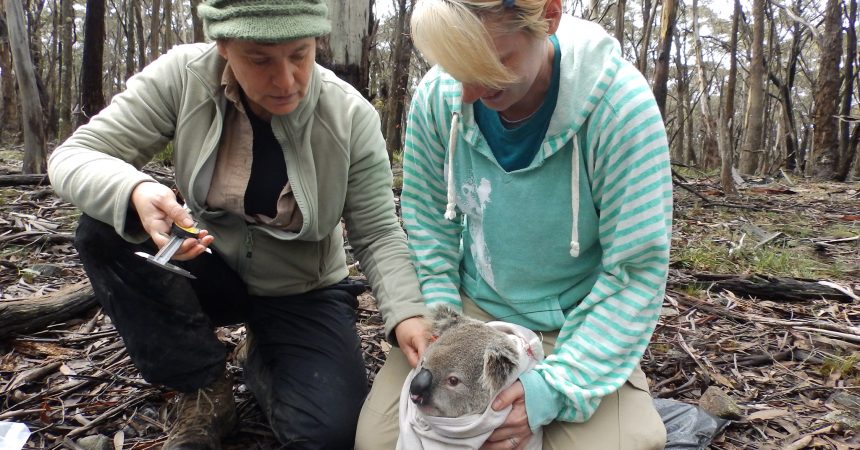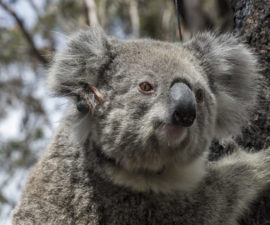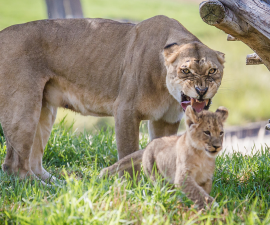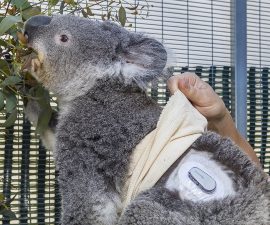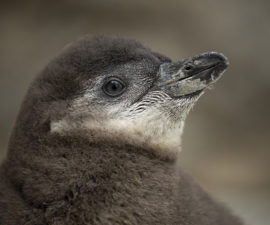This vast wilderness landscape of Australia’s Blue Mountains was catastrophically impacted by the 2019–2020 bushfires in Australia, also known to us as the “Black Summer” bushfires. The scale and intensity of the mega fires was unprecedented. Through the tireless work of the Science for Wildlife team throughout the wildfire crisis and for months afterward, and with the support of San Diego Zoo Wildlife Alliance (SDZWA), we learned a lot about the challenges we’ll have to meet to ensure wildlife conservation is effective under climate change. We also learned just how unprepared everyone was for a wildlife disaster of this scale.
The Australian forest is one of eight hubs around the globe where SDZWA anchors our conservation work, and we have been a core partner with Science for Wildlife and the Greater Blue Mountains World Heritage Koala Project since it began in 2014. The project has been uncovering populations of koalas across the Greater Blue Mountains World Heritage Area in New South Wales (NSW), Australia, which have turned out to be of national significance for the conservation of the species. Koalas in the region have been bucking the general trend of decline that is seen in koala populations in other areas of Australia—and instead, koala populations were growing. Because of our work in the Blue Mountains, I was well placed to lead an extraordinary team of people engaged in wildlife emergency response efforts in early 2020—including the first emergency evacuation of koalas from approaching fire.
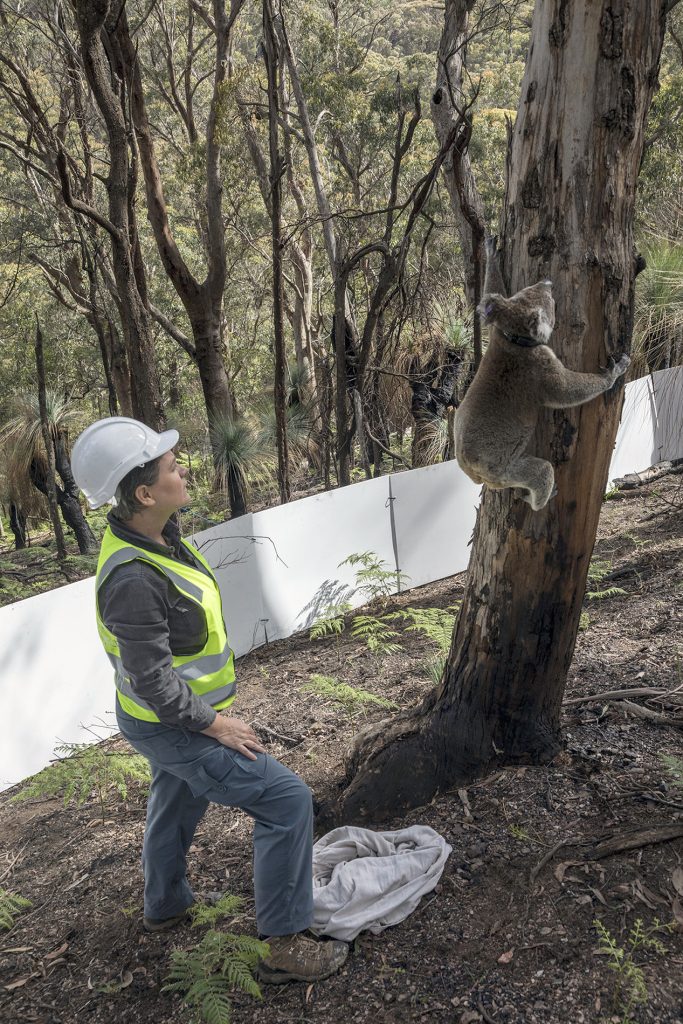
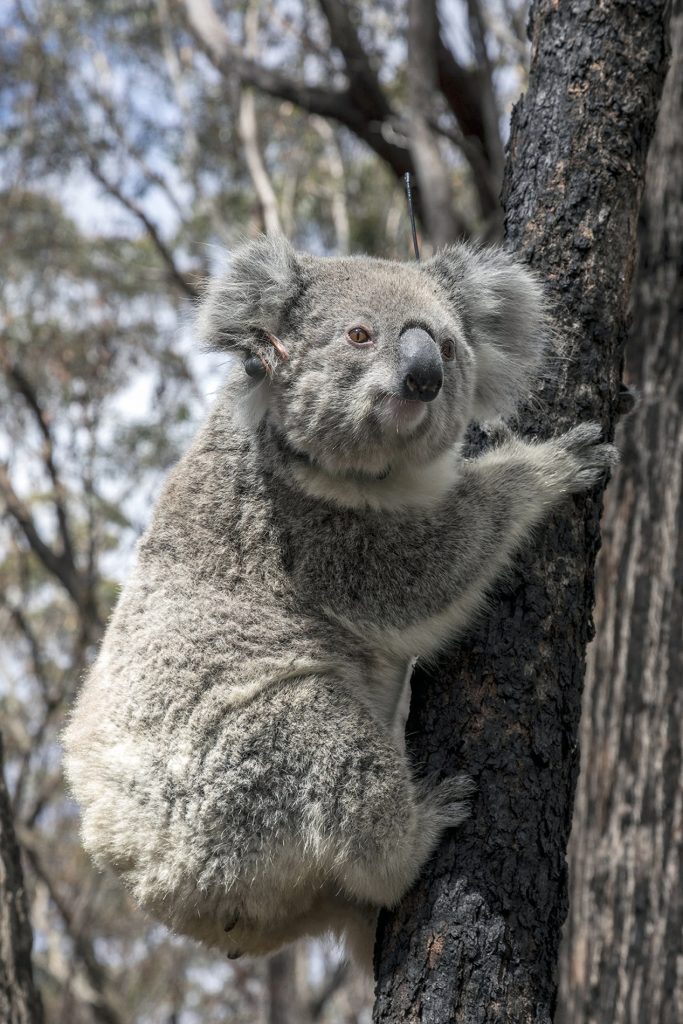
Over the last couple of years, we have received increasing recognition for our work. Due to our efforts and on-ground experience, I have been an invited expert witness at several state and federal government hearings and roundtables in Australia to develop recommendations on how to prepare for more severe fire regimes under climate change. On June 24 this year, I was asked to share our story on an international panel featuring the amazing people who have been on the front lines fighting fires in both Australia and California. Brought together by the Australian consulate in Los Angeles and hosted by California Lieutenant Governor Eleni Kounalakis, the panel worked to raise awareness of wildfire issues in both countries—uniting us over a shared challenge. Sharing the screen with Shane Fitzsimmons AFSM (who we in Australia know so well, as he brought us through the firestorm last year) was a tremendous honor. I felt extremely privileged to be the expert asked to speak on behalf of wildlife and wild spaces. This recent panel was the highest profile international panel I have been asked to join, and I hope it will be part of a bigger discussion between our two countries and the sister states of NSW and California.
Traditionally, priorities during the fires have been first human life and property and then wildlife, and this was reiterated during the panel discussion. While nobody would argue against human life and property being the first priority, in broader terms beyond the bushfires, it is our history of placing the environment as a lower priority that has resulted in climate change—and the bushfires we are all facing—in the first place. We need to learn from that lesson and change our business as usual. The question is one of committing sufficient resources, so that it doesn’t have to be a choice between people and wildlife. Both are linked, and as a species, we need biodiversity and ecosystem processes to survive and thrive. A positive outcome from the bushfires is a shared awareness of that need. Through shared experience, NSW and California can work together to create change.
Dr. Kellie Leigh is Executive Director/CEO with Science for Wildlife and a San Diego Zoo Wildlife Alliance conservationist. She is pictured at left in the photo at the top of this page, along with SDZWA wildlife care specialist Candis Malcom.

